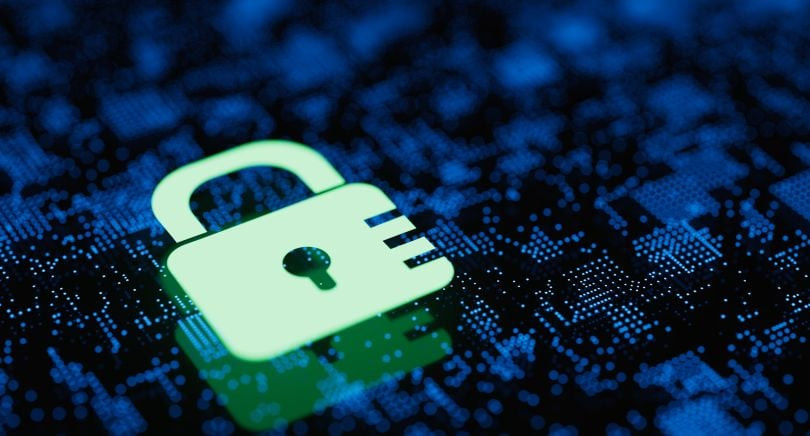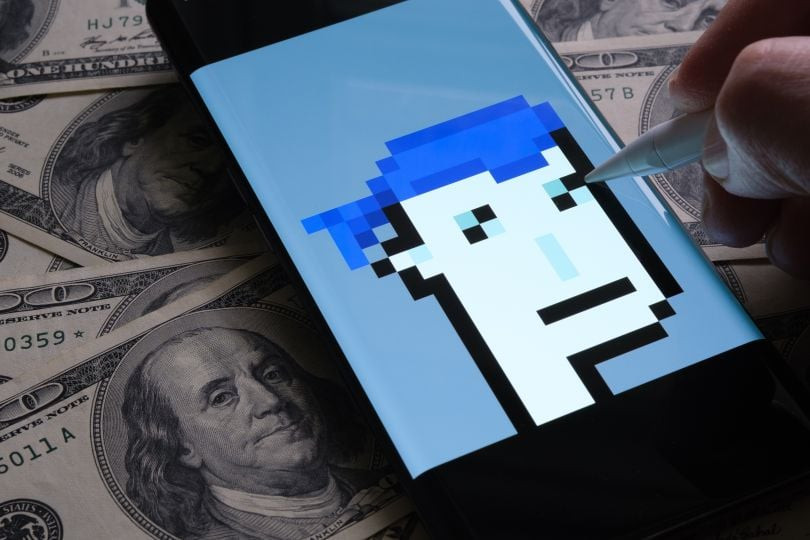Who Uses Blockchain Technology, and why is it becoming increasingly prevalent? Blockchain technology, once primarily associated with cryptocurrencies, is now transforming various sectors. Pioneer-technology.com explores how its transparency, security, and efficiency are being harnessed across industries, driving innovation and creating new opportunities.
1. What is Blockchain Technology and How Does It Work?
Blockchain technology is a decentralized, distributed, and immutable ledger that records transactions across many computers. Instead of relying on a central authority, transactions are grouped into “blocks” that are cryptographically linked together in a “chain.” This ensures that once a block is added to the chain, it cannot be altered or deleted, providing a transparent and secure record of all transactions.
The core principles of blockchain are:
- Decentralization: No single entity controls the network, making it resistant to censorship and single points of failure.
- Transparency: All transactions are publicly recorded and verifiable on the blockchain.
- Immutability: Once a transaction is recorded, it cannot be altered or reversed.
- Security: Cryptographic techniques ensure the integrity and authenticity of transactions.
According to research from the University of California, Berkeley’s Center for Information Technology Research in the Interest of Society (CITRIS), blockchain’s inherent security features make it an ideal solution for securing sensitive data and streamlining complex processes.
2. Who is Actually Using Blockchain Technology?
Blockchain technology is being used by a wide array of industries and organizations, including:
- Financial Institutions: Banks and financial services companies use blockchain for secure and efficient money transfers, trade finance, and identity verification.
- Supply Chain Management: Businesses use blockchain to track products from origin to consumer, ensuring transparency and authenticity.
- Healthcare Providers: Healthcare organizations use blockchain to securely store and share patient data, improving interoperability and data security.
- Government Agencies: Governments use blockchain for secure record-keeping, voting systems, and identity management.
- Media and Entertainment Companies: Media companies use blockchain to manage digital rights, prevent piracy, and ensure fair royalty payments.
3. How is Blockchain Used in Finance?
Blockchain technology is revolutionizing the financial industry by providing secure, transparent, and efficient solutions for various applications.
3.1. Money Transfer
Blockchain facilitates faster and cheaper money transfers, especially for cross-border transactions. Cryptocurrency transfer apps, pioneered by Bitcoin, have surged in popularity, reducing bureaucratic red tape and third-party fees. Block, JPMorgan Chase, and Cash App are leveraging blockchain to streamline financial services and payment processing.
- Block: Offers financial services and digital payment solutions, including Bitkey for secure and accessible modern finance.
- JPMorgan Chase: Utilizes its Onyx blockchain initiative for real-time settlement of interbank U.S. dollar transactions.
- Cash App: Allows users to buy and sell Bitcoin, leveraging the Lightning Network for faster transactions.
 Two smartphones exchanging digital coins
Two smartphones exchanging digital coins
Alt: Secure blockchain money transfer facilitated between two smartphones.
3.2. Cryptocurrency
Cryptocurrencies like Bitcoin and Ethereum are built on blockchain technology, providing a decentralized and secure way to conduct transactions without intermediaries. These digital currencies have gained widespread acceptance as both an investment and a medium of exchange.
3.3. Decentralized Finance (DeFi)
DeFi platforms leverage blockchain to offer financial services such as lending, borrowing, and trading without traditional financial institutions. These platforms provide greater accessibility, transparency, and efficiency.
3.4. Trade Finance
Blockchain streamlines trade finance processes by providing a secure and transparent platform for tracking goods and payments. This reduces fraud, speeds up transactions, and lowers costs for businesses involved in international trade.
4. How are Smart Contracts Used with Blockchain Technology?
Smart contracts are self-executing contracts written in code and stored on a blockchain. They automatically enforce the terms of an agreement when predefined conditions are met, eliminating the need for intermediaries and ensuring compliance.
4.1. Applications of Smart Contracts
- Supply Chain Management: Automating payments and verifying product authenticity.
- Real Estate: Streamlining property transactions and managing rental agreements.
- Healthcare: Securely sharing patient data and automating insurance claims.
- Voting Systems: Ensuring secure and transparent elections.
Chainlink Labs, DFINITY, and Google are at the forefront of developing and deploying smart contract solutions.
- Chainlink Labs: Connects smart contracts to external data sources, enabling verification of real-world events.
- DFINITY: Offers a blockchain network for building decentralized applications and Web3 services.
- Google: Provides Blockchain Node Engine to streamline smart contracts and reduce DevOps needs.
 Digitized contract surrounded by object icons
Digitized contract surrounded by object icons
Alt: Illustration of a digitized blockchain smart contract surrounded by various object icons.
5. What Role Does Blockchain Play in Supply Chain Management and Logistics?
Blockchain technology offers a transformative solution for supply chain management by enhancing transparency, traceability, and efficiency.
5.1. Enhancing Transparency and Traceability
Blockchain allows businesses to track products from origin to consumer, providing a transparent and immutable record of each step in the supply chain. This helps ensure product authenticity, prevent counterfeiting, and improve accountability.
5.2. Streamlining Logistics Processes
By automating processes such as tracking shipments, verifying deliveries, and managing payments, blockchain reduces delays, lowers costs, and improves overall efficiency in logistics operations.
5.3. Companies Utilizing Blockchain in Logistics
Oracle, Chain.io, and DHL are leading the way in implementing blockchain solutions for supply chain management.
- Oracle: Offers Intelligent Track and Trace application for supply chain management, powered by blockchain.
- Chain.io: Builds cloud-native blockchain infrastructures for supply chain and logistics management.
- DHL: Uses blockchain to maintain a digital ledger of shipments and ensure transaction integrity.
According to a joint study by Accenture and DHL, blockchain can resolve many of the challenges facing logistics and supply chain management by enabling data transparency and building greater trust.
6. How Does Blockchain Improve Security?
Blockchain’s decentralized and cryptographic nature provides robust security features that protect data and prevent fraud.
6.1. Protecting Personal Identity
By storing personal information on a decentralized blockchain ledger, governments and organizations can reduce the risk of identity theft and fraud. This ensures that sensitive data is securely stored and accessible only to authorized parties.
6.2. Preventing Data Breaches
Blockchain’s immutable nature makes it difficult for hackers to alter or tamper with data. This provides a high level of security for sensitive information, reducing the risk of data breaches and cyberattacks.
6.3. Ensuring Data Integrity
Blockchain’s cryptographic techniques ensure that data remains accurate and unaltered. This provides a reliable and trustworthy record of all transactions and activities, enhancing overall security.
6.4. Applications of Blockchain Security
- Cybersecurity: Protecting digital assets and preventing unauthorized access.
- Identity Management: Securely storing and verifying personal information.
- Data Storage: Ensuring the integrity and security of sensitive data.
 Padlock icon on computer hardware
Padlock icon on computer hardware
Alt: Illustration of a padlock icon on computer hardware symbolizing blockchain security.
7. How is Blockchain Being Integrated Into the Internet of Things (IoT)?
Blockchain enhances the security and efficiency of IoT devices by providing a decentralized and secure platform for managing data and transactions.
7.1. Securing IoT Devices
Blockchain-infused IoT adds a higher level of security to prevent data breaches by utilizing transparency and virtual incorruptibility. This keeps IoT devices “smart” and secure.
7.2. Managing IoT Data
Blockchain provides a secure and transparent way to manage data generated by IoT devices, ensuring data integrity and preventing unauthorized access.
7.3. Companies Leveraging Blockchain for IoT
Xage Security and Helium are at the forefront of integrating blockchain with IoT.
- Xage Security: Offers a blockchain-enabled cybersecurity platform for IoT companies, managing multiple devices with multi-factor authentication.
- Helium: Provides a decentralized wireless network that connects IoT devices, enabling real-time asset tracking and management.
 City connected through digital network
City connected through digital network
Alt: A city connected through a digital network illustrating the Internet of Things (IoT) and blockchain integration.
8. Blockchain Applications in Healthcare
Blockchain has the potential to transform the healthcare industry by improving data security, interoperability, and efficiency.
8.1. Securing Patient Data
Blockchain ensures the privacy and security of patient data by storing it on a decentralized ledger. This prevents unauthorized access and protects sensitive health information.
8.2. Improving Data Interoperability
Blockchain facilitates the secure sharing of patient data between healthcare providers, improving care coordination and reducing medical errors.
8.3. Streamlining Healthcare Processes
By automating processes such as insurance claims and medical record management, blockchain reduces administrative costs and improves overall efficiency in the healthcare industry.
8.4. Companies Driving Blockchain in Healthcare
Novo Nordisk and Avaneer Health are leading the way in implementing blockchain solutions for healthcare.
- Novo Nordisk: Uses blockchain technology in clinical trials to collect and secure patient data.
- Avaneer Health: Provides a decentralized network designed to make healthcare administration more efficient.
 Medical professional wielding health data insights
Medical professional wielding health data insights
Alt: A medical professional analyzing health data insights with blockchain technology integration.
9. How is Blockchain Revolutionizing Government Operations?
Blockchain offers numerous benefits for government operations, including improved transparency, efficiency, and security.
9.1. Securing Government Documents
Blockchain can be used to secure government documents, ensuring their authenticity and preventing tampering. This provides a reliable and trustworthy record of government activities.
9.2. Improving Bureaucratic Efficiency
By automating processes and reducing paperwork, blockchain streamlines bureaucratic operations, saving time and money for government agencies.
9.3. Enhancing Accountability
Blockchain promotes accountability by providing a transparent and immutable record of all government activities. This helps prevent corruption and ensures that public officials are held responsible for their actions.
9.4. Companies and Entities Improving Government with Blockchain
Kaleido, Follow My Vote, and VOATZ are at the forefront of implementing blockchain solutions for government.
- Kaleido: Provides blockchain-based solutions for running and deploying ledgers across government sectors, including public health and education.
- Follow My Vote: Offers a secure online voting platform using an open-source virtual blockchain ballot box.
- VOATZ: Provides a mobile voting platform that runs on blockchain, ensuring secure and accessible voting from anywhere in the world.
 Government building in sunlight
Government building in sunlight
Alt: Government building under sunlight, symbolizing blockchain applications in government operations.
10. What is the Impact of Blockchain on the Media and Entertainment Industries?
Blockchain is transforming the media and entertainment industries by providing solutions for data privacy, royalty payments, and piracy prevention.
10.1. Managing Digital Rights
Blockchain enables media companies to manage digital rights more effectively, ensuring that content creators are properly compensated for their work.
10.2. Preventing Piracy
Blockchain’s ability to prevent digital assets from existing in multiple places makes piracy virtually impossible, protecting intellectual property rights.
10.3. Ensuring Fair Royalty Payments
Blockchain automates the process of royalty payments, ensuring that musicians and other content creators receive proper compensation for their work.
10.4. Companies Promoting Blockchain in Media
Madhive is at the forefront of promoting blockchain in the media industry.
- Madhive: Provides a blockchain-based advertising and data solution for digital marketers, tracking customer activity and generating reports on a private blockchain.
 Piano keyboard, microphone and headphones on blue background
Piano keyboard, microphone and headphones on blue background
Alt: A piano keyboard, microphone, and headphones on a blue background, representing blockchain applications in media.
11. How are Non-Fungible Tokens (NFTs) Related to Blockchain Technology?
Non-fungible tokens (NFTs) are unique digital assets that are stored on a blockchain. They represent ownership of digital items such as art, music, videos, and virtual real estate.
11.1. Ensuring Ownership of Digital Assets
Blockchain ensures that only one owner can claim full rights to an NFT, providing a secure and transparent way to manage digital assets.
11.2. Creating New Revenue Streams
NFTs have created new revenue streams for artists, musicians, and other content creators, allowing them to sell their work directly to consumers.
11.3. Companies Leveraging NFTs
Dapper Labs and OpenSea are leading the way in the NFT market.
- Dapper Labs: Partnered with the NBA to create “NBA Top Shot,” an NFT marketplace where buyers can own digital media from their favorite players and teams.
- OpenSea: Hosts one of the largest NFT marketplaces in the world, where users can buy, sell, and create NFTs.
 Person drawing CryptoPunk art on top of pile of money
Person drawing CryptoPunk art on top of pile of money
Alt: An individual creating CryptoPunk art on top of a pile of money, symbolizing blockchain and NFTs.
12. What are the Key Benefits of Using Blockchain Technology?
The key benefits of using blockchain technology include:
- Enhanced Security: Cryptographic techniques ensure the integrity and authenticity of transactions.
- Increased Transparency: All transactions are publicly recorded and verifiable on the blockchain.
- Improved Efficiency: Automation streamlines processes and reduces the need for intermediaries.
- Reduced Costs: Eliminating intermediaries and automating processes lowers costs.
- Greater Trust: Decentralization and immutability build trust among participants.
According to a report by Deloitte, blockchain technology has the potential to save businesses billions of dollars each year by reducing fraud, streamlining processes, and improving transparency.
13. What are the Challenges of Implementing Blockchain Technology?
Despite its many benefits, implementing blockchain technology also presents several challenges:
- Scalability: Blockchain networks can be slow and inefficient, especially when processing large volumes of transactions.
- Regulatory Uncertainty: The regulatory landscape for blockchain technology is still evolving, creating uncertainty for businesses.
- Complexity: Blockchain technology can be complex and difficult to understand, requiring specialized expertise.
- Security Risks: While blockchain is generally secure, it is still vulnerable to certain types of attacks.
14. What is the Future of Blockchain Technology?
The future of blockchain technology is bright, with numerous opportunities for innovation and growth. As the technology matures and adoption increases, blockchain is expected to play an increasingly important role in various industries.
14.1. Increased Adoption
More and more businesses and organizations are expected to adopt blockchain technology as they recognize its potential to improve efficiency, transparency, and security.
14.2. New Applications
New applications for blockchain technology are constantly being developed, ranging from supply chain management to healthcare to voting systems.
14.3. Integration with Other Technologies
Blockchain technology is expected to be increasingly integrated with other technologies, such as artificial intelligence and the Internet of Things, creating even more powerful and innovative solutions.
15. How Can You Learn More About Blockchain Technology?
To stay updated with the fast-paced world of technology, visit pioneer-technology.com for in-depth articles, expert analyses, and the latest trends in the industry. Pioneer-technology.com is your go-to source for understanding the revolutionary potential of blockchain and its transformative impact on our world.
15.1. Resources for Learning About Blockchain
- Online Courses: Platforms like Coursera, Udemy, and edX offer courses on blockchain technology.
- Industry Events: Conferences and workshops provide opportunities to learn from experts and network with other professionals.
- Books and Articles: Numerous books and articles provide in-depth information on blockchain technology.
- Community Forums: Online forums and communities provide a place to ask questions, share knowledge, and connect with other enthusiasts.
16. Blockchain: The Key to Tomorrow’s Innovation
Blockchain technology is no longer just a buzzword; it’s a tangible force reshaping industries and redefining possibilities. From finance to healthcare, supply chain to government, the applications of blockchain are vast and varied. As we continue to navigate the complexities of a digital world, understanding blockchain technology becomes increasingly crucial.
17. Is Blockchain Technology Right for Your Business?
Deciding whether to implement blockchain technology requires careful consideration of your specific needs and goals. While blockchain offers numerous benefits, it is not a one-size-fits-all solution.
17.1. Consider Your Needs
Assess your business processes to identify areas where blockchain can improve efficiency, transparency, or security.
17.2. Evaluate the Costs and Benefits
Weigh the costs of implementing blockchain technology against the potential benefits, such as reduced costs, improved efficiency, and increased transparency.
17.3. Seek Expert Advice
Consult with blockchain experts to determine the best approach for your business.
18. What is Pioneer-technology.com’s Role in Understanding Blockchain Technology?
Pioneer-technology.com is dedicated to providing comprehensive and accessible information about blockchain technology, helping you stay informed and make informed decisions. We offer in-depth articles, expert analyses, and the latest trends in the industry, ensuring you have the knowledge you need to navigate the world of blockchain.
Ready to explore the future of technology? Visit pioneer-technology.com today and unlock the transformative power of blockchain. Stay ahead of the curve with our detailed analysis and expert insights.
Address: 450 Serra Mall, Stanford, CA 94305, United States
Phone: +1 (650) 723-2300
Website: pioneer-technology.com
FAQ: Frequently Asked Questions About Who Uses Blockchain Technology
19.1. What are the primary industries that use blockchain technology?
Blockchain technology is primarily used in finance, supply chain management, healthcare, government, and media and entertainment.
19.2. How does blockchain improve security in different sectors?
Blockchain improves security through its decentralized, immutable, and transparent nature, protecting data and preventing fraud in various sectors.
19.3. What are the key advantages of using blockchain in finance?
Key advantages include faster and cheaper money transfers, secure cryptocurrency transactions, and the creation of decentralized finance (DeFi) platforms.
19.4. How can blockchain enhance supply chain transparency?
Blockchain enhances supply chain transparency by tracking products from origin to consumer, providing a transparent and immutable record of each step.
19.5. What role do smart contracts play in blockchain technology?
Smart contracts automate the execution of agreements when predefined conditions are met, eliminating the need for intermediaries and ensuring compliance.
19.6. How is blockchain used in healthcare to secure patient data?
Blockchain secures patient data by storing it on a decentralized ledger, preventing unauthorized access and protecting sensitive health information.
19.7. What are the potential benefits of using blockchain in government operations?
Potential benefits include improved transparency, efficiency, and security in government operations, such as securing documents and streamlining bureaucratic processes.
19.8. How does blockchain prevent piracy in the media and entertainment industries?
Blockchain prevents piracy by ensuring that digital assets cannot exist in multiple places, protecting intellectual property rights.
19.9. What are non-fungible tokens (NFTs) and how are they related to blockchain?
NFTs are unique digital assets stored on a blockchain, representing ownership of digital items such as art, music, and virtual real estate.
19.10. What challenges are associated with implementing blockchain technology?
Challenges include scalability issues, regulatory uncertainty, complexity, and potential security risks.
This comprehensive exploration of “who uses blockchain technology” demonstrates its widespread applicability and transformative potential across various sectors. Stay informed and leverage the power of blockchain with pioneer-technology.com.
